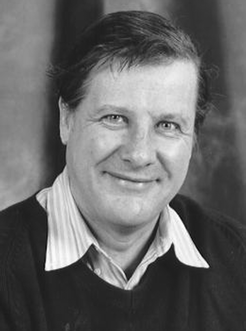Bert Holland
Ian Brindle from Brock University, Canada, writes an obituary of a man who made many contributions to green chemistry, especially in the area of biotransformationsProfessor Herbert Leslie Holland FRSC(UK), MCIC, Professor of Chemistry at Brock University, Canada, passed away peacefully, surrounded by his family, on the 7th of April after a courageous battle with cancer. Bert was always a soft-spoken colleague, whose teaching was greatly appreciated by many generations of students. Bert was born in Bolton, UK, and attended Canon Slade School. Subsequently, he took a degree in Chemistry at Cambridge, followed by an MSc at Warwick University and a PhD at Queen′s University in Belfast, where he worked with the eminent Professor Henbest. He spent the years between 1972 and 1976 at McMaster, Ontario, Canada, as a post-doctoral fellow and later as a teaching fellow, working with Professor Dave MacLean.Bert was an eclectic researcher and he wholeheartedly immersed himself in the new area of biotransformations, an area in which he made major contributions to the understanding and exploitation of microbial systems and enzymes for chemical transformations. He was the author of over 120 papers and communications, more than 30 reviews and book chapters, and two books on biotransformations. Bert′s interests in biotransformations led him naturally to the area of green chemistry where he made substantial contributions at a Gordon Conference, where he chaired a session in the conference that was organized by another Brock Alumnus, Professor James Clark of York University, UK. He is remembered by a colleague from the White House Office of Science & Technology, Dr. Paul Anastas, who writes: ‘Bert Holland brought perspective, thoughtfulness and creativity to all of his work and this was especially true of his work in green chemistry. While Bert will certainly be missed his contributions will long be appreciated and built upon.’
Bert and I were born in the same town and we shared many conversations about the oddities of Lancashire dialect. There are Lancashire words that I will no longer be able to use, since Bert is no longer around to nod and say ‘Aye’. An avid train enthusiast, Bert also wrote books on steam trains and one of his last books was ″Plodder Lane for Farnworth″; a small monograph that describes the railway line that ran through the small station that was virtually at the end of the street on which Bert lived as a child.
Bert′s wife Fran was his companion on the many trips that they took to conferences, she also looked after the students in the research labs and helped students with techniques in the lab and she assisted scores of Bert′s students through the travails of research work and thesis production. Bert′s legacy of students, who can be found across the world, will be deeply saddened by his loss. Bert leaves his wife Frances, and sons Giles and Colin.
Ian D. Brindle is Dean, Faculty of Mathematics and Science and Professor of Chemistry at Brock University, St. Catharines, Ontario L2S 3A1, Canada (e-mail: ibrindle@brocku.ca)
Postscript: James Clark, Scientific Editor of Green Chemistry, adds: ‘I knew Bert from when he was a young academic at Brock to when he became an internationally leading scientist for his excellent work on biotransformation. I always enjoyed his company – he was a skilled chemist with a real belief in green chemistry. His contributions to meetings I organised were always intelligent and positive. Bert was a modest man and someone who found time for people. As my colleague Helen Coombs said when I told her of Bert’s death ‘He was always so pleasant’. Bert was a gentleman and a scholar. We will miss him very much.’
| This journal is © The Royal Society of Chemistry 2003 |

